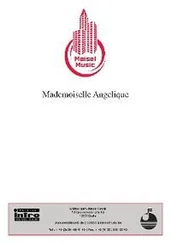“Here I go,” he said, after he had closed the door quietly behind him. It all went marvelously well for the first few hundred yards. He felt stronger with each step, as if walking were something that he only had to practice a little to master again, and he thought he would have enough strength left when he got there to sweep the floor of the cave to make himself a neat place to lie down in. But he wasn’t halfway to the line of woods before he caught a hint of smoke in the air. Someone else is up late, he told himself, and has made a fire for tea. And believing that bore him up for a dozen more yards, until he couldn’t ignore the alien quality of the smell. It wasn’t just wood burning, and he noticed that his feet were feeling heavier and heavier.
Another few steps and he could not move his feet — though his legs were sturdy he felt stuck to the ground. His arms dropped down to his side and an apple he’d picked up off the kitchen table on his way out fell from his hand. Now the smoke obscured his vision, drifting across the smithy and obscuring the line of the woods. He felt a glow along his spine — something was forcing him to stand taller and straighter than he’d ever stood before in his life — and his eyes were lifted up. As if he were flying upward, the limits of his sight expanded: the school and Sara’s window and the store and the church and even the curve of the night sky and Hamilton, where they left their lights on all night long. He cried out just before he felt the little sting in his leg, and then a moment later another at his cheek.
“It’s just a kernel,” Tercin said, stepping out from behind a tree, his slingshot dangling in his hand. “If I’d really wanted it to hurt I’d have used a stone.” He drew on his brother again, standing just before him and aiming right at his face. Peter laughed because Tercin seemed so small. He was looking down at him from a thousand feet high, yet he could see perfectly the confusion and disappointment on his face, and hear him clearly even over the noise of wind and flames. The other tower was burning next to him. “Even with a kernel, I could put out your eye,” Tercin said.
“Get away,” Peter said. “The other angel is coming.”
“Angels got no truck with me. I don’t fear ’em. You’re up late.”
“Go away — it will strike you, too!” Peter said, though he wasn’t sure why it would bother with something as small and crude as his brother. With his high sight he could see it coming, still very far but flying with such speed that he knew it was only moments away.
“Going for a trip!” Tercin shouted, finally understanding Peter’s obvious purpose and slapping his pack. “Well, bon voyage and good riddance. Maybe we can talk about something else now at dinner, and somebody’ll laugh again in that house. Even when we’re not talking about you, we’re talking about you!”
“It’s coming,” Peter said.
“There’s other people in the world besides you, you know. Other troubles besides yours. But you’d never know it. In that house nobody’d know it. Well, go on, then. You want me to carry you?”
“Please,” Peter said, feeling very small despite his height, and vulnerable despite his bulk, and sure that the violent touch of the angel would finally kill him, and surprised as much to find himself begging mercy from his brother as at how easily he threw off the weary despair of the long sickness to discover how very much he wanted to live. “Brother. . please. . do not let it strike me!” He thought Tercin must have heard it, because he turned and looked around him just before it arrived, and when he couldn’t see it he turned back to his brother and looked in his face. Something he saw there must have overcome his natural animosity. He dropped his slingshot and turned and put his hands up and cried, “Get away!”
He was no impediment. The angel flew high above him and through him — gleaming, roaring, and big as a church, it struck Peter right in his heart and started a fire there. As it burned he made the biggest noise of his life, bigger than anything he thought was left in him after being ill so long, and though he couldn’t walk, and Tercin had discovered his purpose, it was only then — imagining lights go on in his house and all through the town — that he felt he’d lost his chance of escape.
Very far below, Tercin was looking up at him, wonder and fear plain on his tiny little face. Peter wept at the pain of the fire. It loosened him. He shrugged, and pieces of his shoulders fell to the earth. Look out, he tried to say to Tercin, but he couldn’t speak anything but sobs. People were falling from him, too. Leaping from out of his hair, dropping from his nose, squeezing like tears from the corners of his eyes — small as his brother they fell. He turned his head, shaking more from his hair, and saw that it was Sara standing next to him, just as tall and strong and ruined, but she had been struck first, and had been burning longer. Her bones were so hot he could see them shining through her skin. She spoke his name and then fell apart, her head riding a collapsing column of ashes and smoke to fall between her feet and shatter on the grass. The seizures took him then, and he didn’t have to watch anymore.
The vision ceased for Tercin, too. While Peter twitched and moaned, Tercin lay prone with his hands over his head, and he didn’t dare look up until Peter grew quiet. He looked around at the woods and the quiet night: there wasn’t a burning youth or a falling body or a screaming angel in sight. He stood up and wiped his eyes and nose. “Look what you did now,” he said to his brother, peacefully asleep now on the ground. “Now you gave it to me!” He kicked him hard in the ribs, and thought he could feel one break even through his boot. Still he kicked him again. “You nasty leper, now you gave it to me!” He turned and ran away into the woods, then came back a moment later for his slingshot. He kicked his brother once more and was gone again.
I saw you and I know that you saw me. I know you heard me when I spoke your name. I was about to say something else — something utterly important and wise. Now I forget it, of course, and I wonder sometimes if I spoke more than your name, if I actually gave voice to the feeling in me just before my burning bones gave out and I fell — I felt like I knew what it was about, that I understood the mystery beneath the affliction, and the reason that we are all suffering. A grand, high feeling — surely it would translate into unforgettable words. If I had spoken them I know you would remember them even if I didn’t — but now nothing but silence from you for fourteen days. Are you pretending to be dead? My spies are everywhere, dear friend. Little Abby Crowley saw you reading yesterday afternoon in your window. You drew a picture of an owl and showed it to her through the glass, and yet you cannot write a few words to me .
Edgar is worse, perhaps you’ve heard. Maybe you have your own spies, or maybe your mother only tells you what she thinks it’s good for you to hear. He has not been properly awake all week now, and he choked last night when his sister slipped the gruel between his lips. Now he has a fever. Dr. Herz spends three hours a day there patting his chest and back with a crystal glass. Artificial coughing, he says, because Edgar won’t do it for himself. “He’ll perk up,” Dr. Herz says, “just you wait.” I imagine him saying that over the corpse. Just give him a moment, he’d say, and prod him with some very special kind of stick .
I know what risk I run in telling you this. You will take it to heart in the wrong way, and say I was wrong when I said there was a strange and secret blessing in all this. It’s only death, you’ll say. Just another way to die, slower and more painful and more odd than most. Well, maybe for some .
Читать дальше












